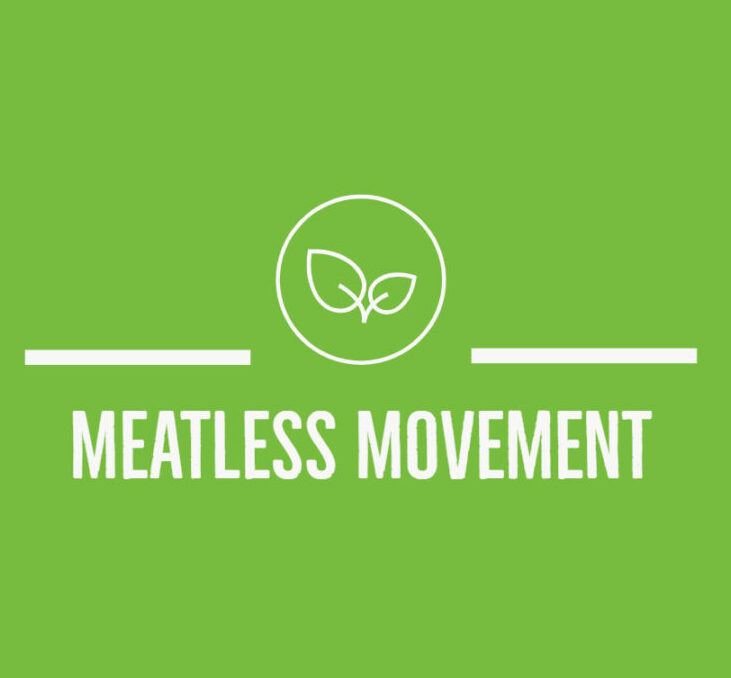a
Please tell us more about yourself
𝐎𝐧𝐞 𝐩𝐞𝐫𝐬𝐨𝐧 𝐜𝐚𝐧 𝐦𝐚𝐤𝐞 𝐚 𝐝𝐢𝐟𝐟𝐞𝐫𝐞𝐧𝐜𝐞
Charlotte Jane Holland
I am 27, originally from a little village in the Costwolds, UK. I grew up in the countryside and surrounded by farms, this definitely made me very aware of where my food came from growing up. I have a BA in Environment and Business Studies after I pursued my passion for sustainability and especially veganism – I even wrote my dissertation all about the vegan movement. I love nature, animals and I am hugely passionate about living ethically and sustainably.
What inspired you to become vegetarian or vegan, and how long have you been following this lifestyle?
𝐈 𝐰𝐚𝐬 𝐭𝐡𝐞 𝐟𝐮𝐬𝐬𝐢𝐞𝐬𝐭 𝐞𝐚𝐭𝐞𝐫 𝐛𝐞𝐟𝐨𝐫𝐞 𝐈 𝐰𝐞𝐧𝐭 𝐯𝐞𝐠𝐚𝐧, 𝐈’𝐯𝐞 𝐥𝐞𝐚𝐫𝐧𝐭 𝐲𝐨𝐮 𝐫𝐞𝐚𝐥𝐥𝐲 𝐜𝐚𝐧 𝐭𝐫𝐚𝐢𝐧 𝐲𝐨𝐮𝐫 𝐛𝐨𝐝𝐲 𝐭𝐨 𝐥𝐢𝐤𝐞 𝐧𝐞𝐰 𝐟𝐨𝐨𝐝𝐬 𝐚𝐧𝐝 𝐞𝐧𝐝 𝐮𝐩 𝐥𝐨𝐯𝐢𝐧𝐠 𝐭𝐡𝐞𝐦!!
Charlotte Jane Holland
I have recently celebrated 10 years of vegan living! I made the decision to change my lifestyle after reading the book ‘Eating Animals’ by Jonathan Safran Foer. A truly inspiring book which sheds light on the abuse animals suffer at the hands of humans, the bizarre societal norms we have around our food, what animals we eat and what we don’t and so much more. It’s a must read; everyone should know the information within these pages. After reading this book I couldn’t look back. I had to be a voice for the animals and I refused to contribute to the environmental destruction our western diet causes to the planet.
What are some common challenges in finding vegan or vegetarian options, especially when eating out with friends, and how do you overcome them?
𝐄𝐯𝐞𝐫𝐲 𝐩𝐞𝐧𝐧𝐲 𝐲𝐨𝐮 𝐬𝐩𝐞𝐧𝐝 𝐢𝐬 𝐚 𝐯𝐨𝐭𝐞 𝐟𝐨𝐫 𝐭𝐡𝐞 𝐜𝐡𝐚𝐧𝐠𝐞 𝐲𝐨𝐮 𝐰𝐚𝐧𝐭 𝐭𝐨 𝐬𝐞𝐞 𝐢𝐧 𝐭𝐡𝐢𝐬 𝐰𝐨𝐫𝐥𝐝. 𝐀 𝐬𝐞𝐧𝐭𝐢𝐦𝐞𝐧𝐭 𝐈 𝐡𝐚𝐯𝐞 𝐚𝐥𝐰𝐚𝐲𝐬 𝐥𝐨𝐯𝐞𝐝.
Charlotte Jane Holland
When I turned vegan 10 years ago it was virtually impossible to find a restaurant which catered to my diet easily. Today the world is a different place and I believe veganism is so much more accessible. However, suffering with my nut allergy has made my lifestyle particularly challenging and so checking menus for restaurants and offering to organise dinners out with my friends often helps me overcome any issues with food options.
How would you encourage someone who’s not yet vegan or vegetarian to give meatless food a try?
𝐕𝐞𝐠𝐚𝐧𝐬 𝐚𝐫𝐞 𝐧𝐨𝐭 𝐩𝐫𝐨𝐭𝐢𝐞𝐧 𝐝𝐞𝐟𝐢𝐜𝐢𝐞𝐧𝐭.
Charlotte Jane Holland
I believe the best way to encourage others to engage in veganism and try new dishes is to focus on the taste of the dish rather than any ethical arguments as to why it may be the better option. Those who are less interested or ‘scared off’ by vegan/veggie labels are less likely to be inclined to try something they associate with negative conations – make it feel as normal as possible and remind them its still food, like their own food at the end of the day!
What are some of your favorite places or dishes for vegan or vegetarian food?
𝐌𝐲 𝐥𝐢𝐟𝐞𝐬𝐭𝐲𝐥𝐞 𝐡𝐚𝐬 𝐨𝐩𝐞𝐧𝐞𝐝 𝐦𝐲 𝐞𝐲𝐞𝐬 𝐭𝐨 𝐧𝐞𝐰 𝐟𝐥𝐚𝐯𝐨𝐮𝐫𝐬 𝐚𝐧𝐝 𝐟𝐨𝐨𝐝𝐬 𝐈 𝐰𝐨𝐮𝐥𝐝 𝐧𝐞𝐯𝐞𝐫 𝐡𝐚𝐯𝐞 𝐨𝐭𝐡𝐞𝐫𝐰𝐢𝐬𝐞 𝐞𝐱𝐩𝐞𝐫𝐢𝐞𝐧𝐜𝐞𝐝.
Charlotte Jane Holland
Some of my top restaurants are Mildreds in Soho, London. Kibou in Clifton, Bristol. Muse, Central Bristol.
For home cooked food – a tofu curry, bean burger, meatless pie or lentil lasagna are always winners!
What are the biggest misconceptions about vegan and vegetarian diets?
𝐀𝐧𝐢𝐦𝐚𝐥𝐬 𝐰𝐢𝐥𝐥 𝐚𝐥𝐰𝐚𝐲𝐬 𝐧𝐞𝐞𝐝𝐬 𝐮𝐬 𝐭𝐨 𝐠𝐢𝐯𝐞 𝐭𝐡𝐞𝐦 𝐚 𝐯𝐨𝐢𝐜𝐞
Charlotte Jane Holland
You can get more than enough protein on a vegan diet. Many vegetables and pulses also contain protein not just tofu and tempeh! A vegan diet is very healthy, it encourages you to cook from scratch and consume a wide variety of vegetables and legumes. Doing your own research and understanding all the nutrients you can gain from each plant is essential to help you maximise your health benefits!
What advice would you give to someone who’s just starting their journey into a meatless lifestyle?
𝐀𝐧𝐢𝐦𝐚𝐥𝐬 𝐰𝐢𝐥𝐥 𝐚𝐥𝐰𝐚𝐲𝐬 𝐧𝐞𝐞𝐝𝐬 𝐮𝐬 𝐭𝐨 𝐠𝐢𝐯𝐞 𝐭𝐡𝐞𝐦 𝐚 𝐯𝐨𝐢𝐜𝐞
Charlotte Jane Holland
Educate yourself, understand why you have made the choice that you have. Changing your lifestyle and going against the trends is hard and only your passion for what you believe in will help you through the tough times.
𝐄𝐯𝐞𝐧 𝐬𝐦𝐚𝐥𝐥 𝐜𝐡𝐚𝐧𝐠𝐞𝐬 𝐢𝐧 𝐭𝐡𝐞 𝐰𝐚𝐲 𝐲𝐨𝐮 𝐥𝐢𝐯𝐞 𝐜𝐚𝐧 𝐜𝐫𝐞𝐚𝐭𝐞 𝐚 𝐡𝐮𝐠𝐞 𝐝𝐢𝐟𝐟𝐞𝐫𝐞𝐧𝐜𝐞𝐬.
Charlotte Jane Holland
Veganism is a lifestyle not a diet, I have seen so many people change back to eating meat. Don’t underestimate how important it is to invest the time in learning about yoir food, how to cook and most importantly, never forget those animals you are standing up for.
Thanks,
Charlotte
Charlotte Jane Holland
𝚅𝚎𝚐𝚊𝚗 • 𝙱𝚛𝚒𝚜𝚝𝚘𝚕 • 𝚃𝚛𝚊𝚟𝚎𝚕 • 𝚁𝚎𝚌𝚒𝚙𝚎𝚜 🦋🌎👣🍃
𝔼𝕒𝕔𝕙 𝕚𝕟𝕕𝕚𝕧𝕚𝕕𝕦𝕒𝕝 𝕔𝕒𝕟 𝕞𝕒𝕜𝕖 𝕒 𝕕𝕚𝕗𝕗𝕖𝕣𝕖𝕟𝕔𝕖 💫👊🏻
𝚂𝚌𝚛𝚘𝚕𝚕 𝚍𝚘𝚠𝚗 𝚏𝚘𝚛 𝚟𝚎𝚐𝚊𝚗 𝚏𝚘𝚘𝚍 𝚒𝚗𝚜𝚙𝚘 💚⬇️
𝟠 𝕪𝕖𝕒𝕣𝕤 𝕒𝕟𝕕 𝕔𝕠𝕦𝕟𝕥𝕚𝕟𝕘🌱
all images courtesy of Charlotte Jane Holland
